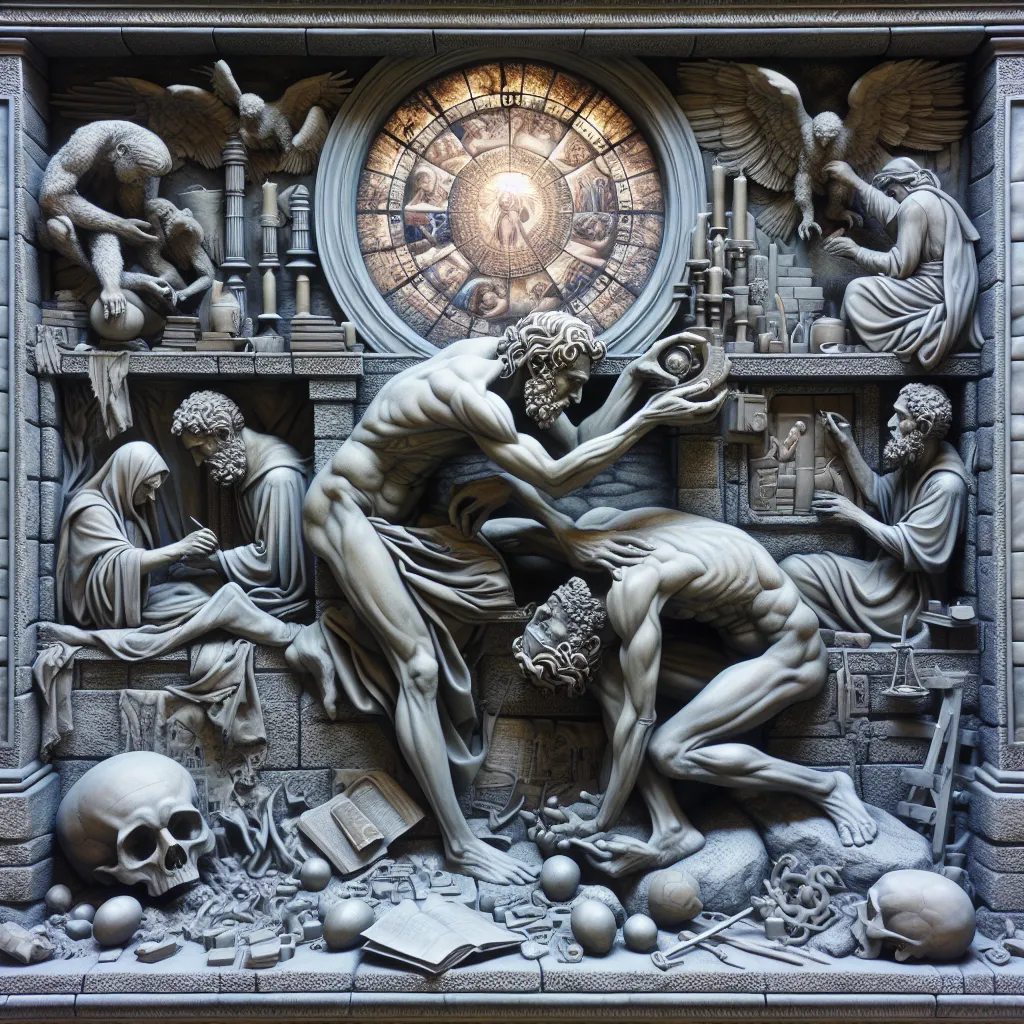
- Published on
- Authors

- Name
- You
The Book of Job: Alchemical Transformation and Spiritual Trials
The Book of Job, one of the most profound pieces of wisdom literature from the Bible, holds layers of meaning that transcend its religious context. When viewed through a magical lens, Job's narrative reveals a journey akin to alchemical transformation and the pursuit of spiritual growth. This article delves into these esoteric aspects, offering insight into how the trials and tribulations faced by Job can be interpreted as symbolic of profound inner change.
The Alchemical Stages and Job's Trials
In alchemy, the Great Work (or Magnum Opus) involves four primary stages—Nigredo, Albedo, Citrinitas, and Rubedo. Each stage represents a phase of spiritual and psychological transformation. Similarly, Job's trials can be mapped onto these alchemical stages, reflecting his journey towards enlightenment.
| Alchemical Stage | Description | Job's Trials & Experiences |
|---|---|---|
| Nigredo | Blackening or putrefaction | Job's immense suffering and loss |
| Albedo | Whitening or purification | Job's contemplation and search for meaning |
| Citrinitas | Yellowing or awakening | Job's realization and deeper understanding |
| Rubedo | Reddening or completion | Job's ultimate restoration and enlightenment |
Nigredo: The Dark Night of the Soul
Job’s journey begins with Nigredo, the blackening phase. He loses his wealth, health, and family, plunging into a state of despair and existential crisis. This phase in alchemy is akin to the 'dark night of the soul,' where the old self undergoes dissolution to pave the way for transformation.
Albedo: Purification Through Suffering
The next phase, Albedo, involves purification through suffering. Job’s incessant questioning and dialogues with his friends and God signify a process of deep internal cleansing. This period represents a quest for truth and the shedding of impurities, both literal and metaphorical.
Citrinitas: Awakening and Enlightenment
As Job approaches Citrinitas, he begins to attain enlightenment. This stage represents a dawning of consciousness where true knowledge begins to emerge. Job’s conversations with God from the whirlwind mark a turning point, where he is bestowed with profound insights that transcend conventional wisdom.
Rubedo: Rebirth and Renewal
Finally, Rubedo, the reddening stage, signifies rebirth and renewal. Job's fortunes are restored, symbolizing the completion of his transformative journey. He emerges not only with regained material wealth but with a deeper spiritual understanding and connection to the divine.
Symbolism and Occult Practices in Job’s Story
- Hermetic Principles: Job’s trials can be seen through the lens of Hermetic principles, particularly the principle of Correspondence ("As above, so below"). His earthly struggles mirror the celestial battle between good and evil.
- Tarot Archetypes: The archetypes presented in Job's story align with various Tarot cards. For instance, The Tower represents Job’s initial downfall, while The Star symbolizes hope and faith in adversity.
- Astrological Influences: The book also alludes to astrological symbolism, with Job’s suffering occurring under the mystical Saturnian influence, which governs hardship and karmic lessons.
Conclusion: The Transformative Power of Tribulation
The Book of Job encapsulates the essence of alchemical transformation and spiritual trials. Job's story is not just a tale of suffering but a metaphor for the arduous path towards enlightenment. By interpreting his trials through a magical lens, we uncover a profound narrative of inner alchemy and the eternal quest for spiritual growth.
May we all find the strength and wisdom within our trials, much like Job, to emerge transformed and enlightened.
Recommended Reading:
- The Hermetica: The Lost Wisdom of the Pharaohs by Timothy Freke and Peter Gandy
- Alchemy: An Introduction to the Symbolism and the Psychology by Marie-Louise von Franz
- The Secret Teachings of All Ages by Manly P. Hall
This rich examination of the Book of Job demonstrates how ancient texts can offer profound insights into the universal human experience when viewed through the lens of alchemy and spiritual transformation.
